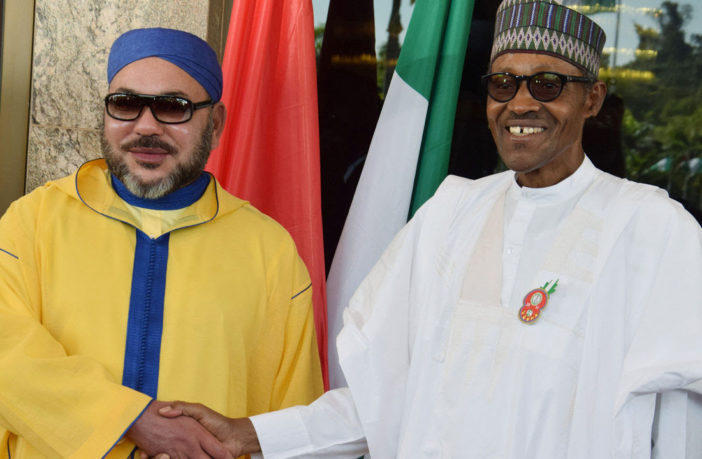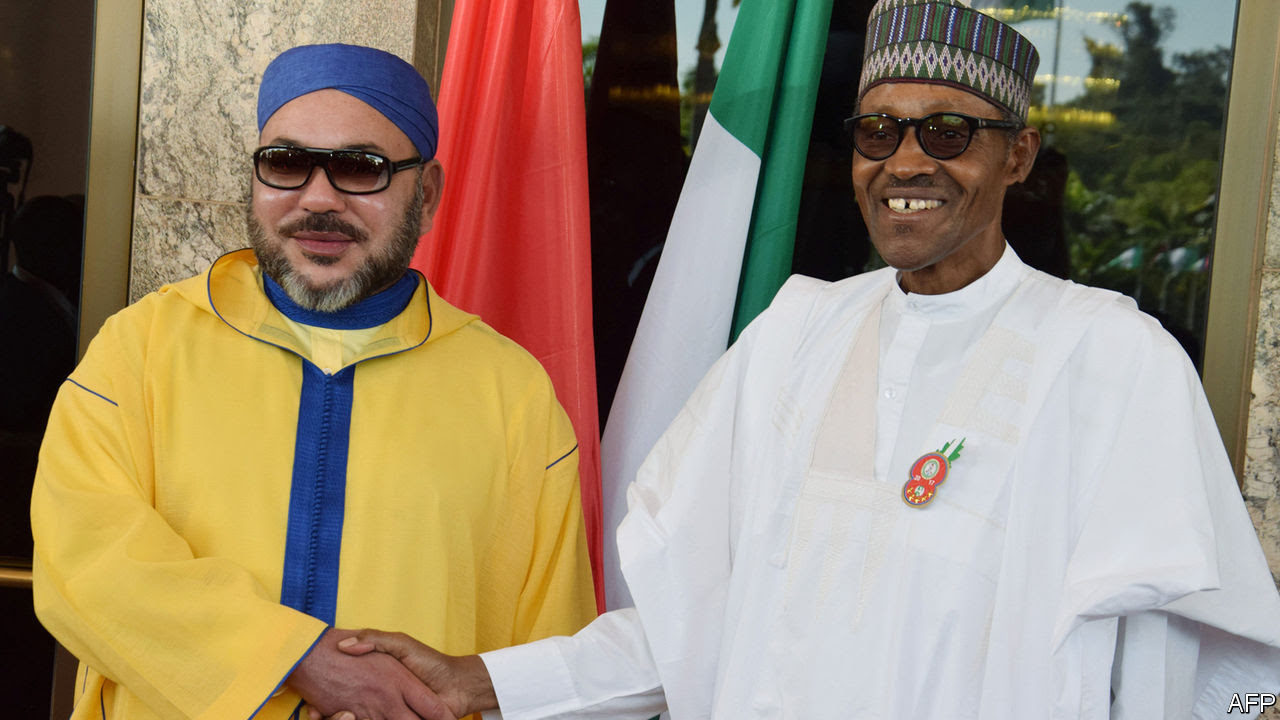The economist
Even if some of its neighbours are resisting its charm….
King Mohammed VI of Morocco has had a quiet year. The monarch, who has visited at least 14 African countries since October 2016, scaled back his travels after a heart operation in February. But he still managed to play host to Mali’s prime minister in March and visit Congo-Brazzaville in April.
Last month he took the Nigerian president, Muhammadu Buhari, on a motorcade tour of the capital, Rabat, flattering him with cheering spectators.
Like their king, Moroccan companies are also lavishing attention on west Africa. The African Development Bank estimates that 85% of Morocco’s outward foreign direct investment (FDI) goes to sub-Saharan Africa. Trade lags behind, but this too is growing. Exports of Moroccan goods to west Africa tripled from 2006 to 2016. The king brings large trade delegations on his marathon African tours, usually signing a raft of deals with his hosts.
Politically, it is easier for Morocco to cultivate allies across the Sahara than in its own neighbourhood; regional integration in the Maghreb is hampered by a long-running rivalry with Algeria. After intense lobbying Morocco was readmitted to the African Union (AU) last year, ending a 32-year absence. Morocco had stormed out in 1984 after the AU admitted as a member state Western Sahara, which Morocco says is part of its territory. With the Economic Community of West African States (ECOWAS) considering Morocco for membership, the charm offensive continues. It has donated 25,000 tonnes of fertiliser to Guinea and trained 300 Malian imams.
Economically, engagement with west Africa lets Morocco diversify from its traditional focus on Europe, says Issandr El Amrani of the International Crisis Group, a think-tank in Brussels. Even though Morocco has emerged as a low-cost manufacturing hub for European firms, its own companies struggle to compete in Europe. But they can thrive in west Africa.
Moroccan banking, telephone and insurance companies have led the charge. In 2015 they made up 88% of the country’s FDI in sub-Saharan Africa. Its three largest banks have almost a third of the market share in the eight countries that use the west African CFA franc. Attijariwafa, the largest, has 443 west African branches. Itissalat al-Maghreb, the country’s largest telecoms company, generated 43% of its turnover last year from subsidiaries in the region. Morocco also hopes to host the regional headquarters of Western firms doing business in Africa. It has established a financial hub in its economic capital Casablanca, offering tax breaks as a lure. Membership of ECOWAS would extend its reach. Goods exported from Morocco to other ECOWAS members would be exempt from the bloc’s common tariff.
But Morocco’s bid to join has exposed the limits of its influence. All seemed well last June, when ECOWAS agreed “in principle” to its accession. But west African businesses were less keen, fearing Moroccan competitors would crush them. Criticism is loudest in Nigeria, ECOWAS’s largest economy. Many there fret that Morocco would benefit from freer trade but wriggle out of other rules, like visa-free travel. Its application now seems stalled. Recent ECOWAS summits avoided the subject.
The kingdom still hopes to charm its way in. During Mr Buhari’s recent visit to Rabat, he and the king agreed to build a gas pipeline from Nigeria to Morocco. But the plan has no financing and its feasibility is open to doubt.
For all the kingdom’s investment in west Africa, ordinary Moroccans aren’t yet reaping the benefits. Banking and telecoms investments abroad do not generate many jobs back home. Meanwhile 43% of the urban young are said to be unemployed and the Rif region in the north is restive. Before planning his next west African tour, the globe-trotting king may need to deal with domestic concerns.
This article appeared in the Middle East and Africa section of the print edition under the headline “Making eyes across the Sahara”








